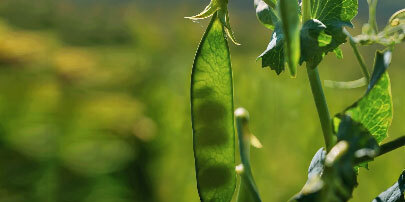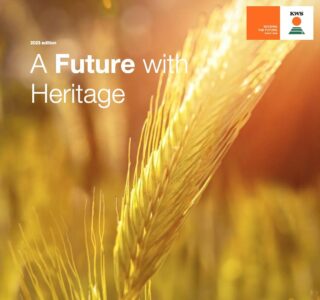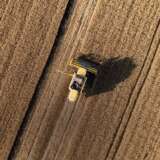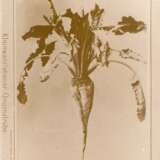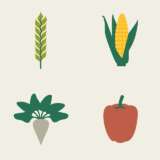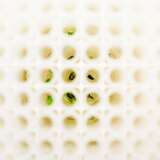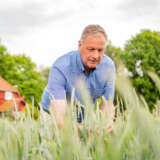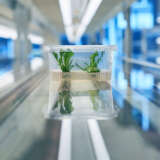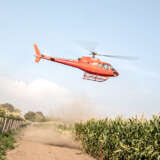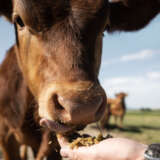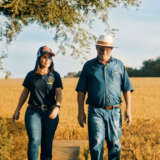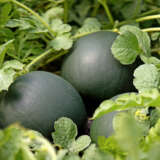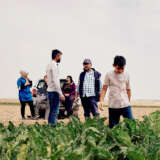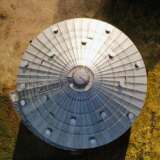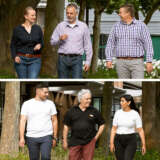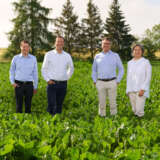Innovation
and research spirit!
Protecting against pests
Saving oilseed rape plants.
A milestone in KWS’s breeding activities has been the development of strong oilseed rape varieties with excellent genetics that provide natural protection against the cabbage-stem flea beetle. Due to the ban on neonicotinoid seed treatments in EU countries and increasing restrictions on using insecticides, multiple strategies will be needed to manage the damage caused by the cabbagestem flea beetle.
is one of several approved winter oilseed rape varieties that, in addition to generating high yields, offers genetic protection against stem fleas and provides farmers with greater cultivation security.
Analysis tool
Innovative index improves corn silage.
Working with the University of Padua, KWS Italy has developed a method to analyze the quality and ensiling ability of corn silage in real time using a PoliSPEC NIR field device. An algorithm-based index for ensilability lies at the core of this method: Drawing on chemical parameters identified in the freshly chopped corn, the algorithm estimates the silage’s quality and dry-matter losses. The system makes it possible to adjust the dose of the silage additive with a special pump right at harvest time. This permits the balancing of possible quality deficiencies and storage losses. The KWS Silage Index is now an internationally recognized tool.
Field test
Helicopters test corn standability.
KWS is having helicopters fly over corn fields: The strong winds created by the helicopters’ rotors have the potential of damaging the crop and impacting the harvest. The aerial tests simulate extreme weather events like storms, thereby providing a method for inspecting the standability of the corn plants. After all, if corn stalks are damaged by storms or heavy rains, the supply of nutrients and water to the plant is interrupted. The affected fields then often have to be harvested prior to maturity to prevent fungal diseases or further collapse of the crop. Progress in plant breeding has enabled KWS to significantly improve the standability of corn and other crops.
Development cooperation
Capacity Development Seed project.
Cofinanced by KWS, the Capacity Development Seed (CD Seed) model project has supported research and the supply of seed to institutions and small farmers in Ethiopia since 2012. The project aims to conserve plant genetic resources; introduce efficient strategies for barley, wheat and fava-bean development; and ensure small farmers have access to improved seed. Among the successes of the project:
were returned and 64,000 farmers obtained access to higher-yielding seed. In addition, improved fava bean varieties will contribute to the sustainability of cultivation systems in the future. The CD Seed project has now become a self-sustaining initiative.
Vegetable breeding
New research laboratory.
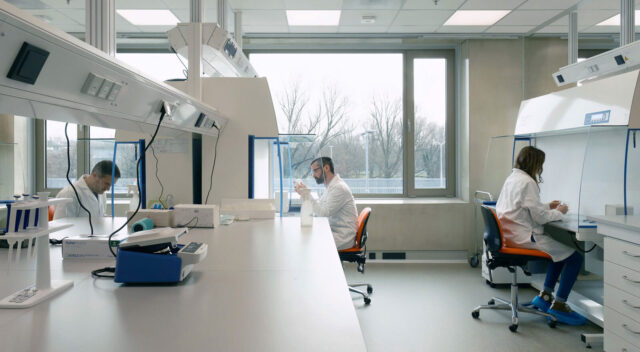
Laboratory and tissue-culture rooms as well as three phytotrons have been given ample space in the new 450-square-meter laboratory facilities: KWS Vegetables is expanding its research capacities at its headquarters in Wageningen. The work carried out in the facilities there focuses on the double haploid (DH) method, which significantly improves the speed and efficiency of breeding processes and shortens the development period for commercial varieties. The laboratory facilities’ initial result will be supplying DH lines for cucumber and pepper to breeding programs in Spain, Italy, Mexico, Brazil and Turkey.
Knowledge exchange
Using TraitWay to develop innovative plant varieties.
A key to developing high-performing plant varieties is having access to innovation at fair and reasonable conditions — while also ensuring adequate intellectual-property protection: As a member of the International Licensing Platform Vegetable and a strong driver of the Agricultural Crop Licensing Platform founded at the beginning of 2023, KWS is convinced that plant breeding needs to employ an open, transparent approach to the exchange of technology and knowledge. This conviction has led to establishing a new platform:
offers native-trait-related patent applications and patents for licensing to interested breeders.
